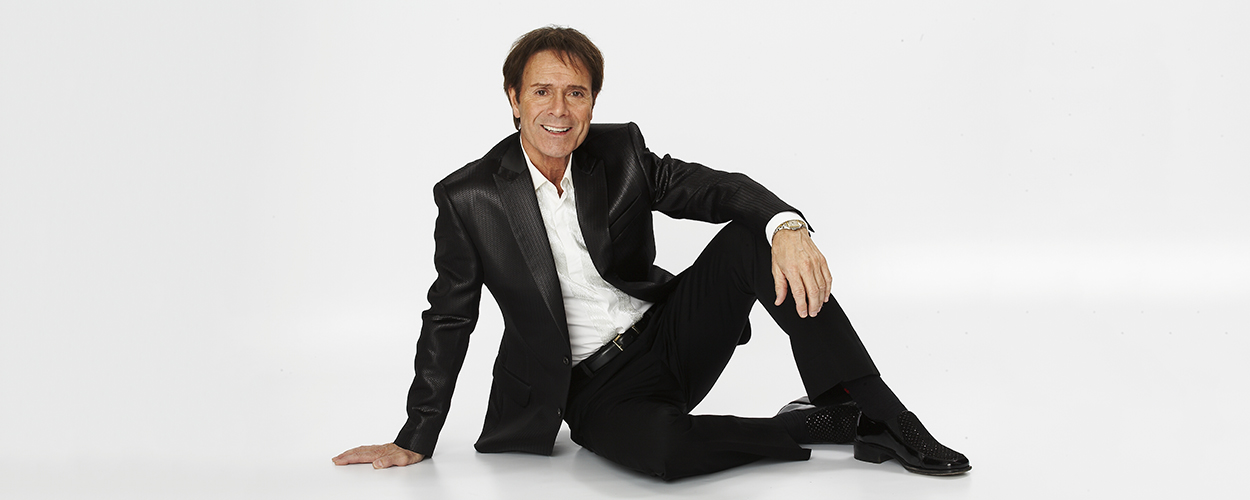This website uses cookies so that we can provide you with the best user experience possible. Cookie information is stored in your browser and performs functions such as recognising you when you return to our website and helping our team to understand which sections of the website you find most interesting and useful.
Artist News Legal
Cliff Richard says he’s “forever tainted” by sex abuse allegations
By Chris Cooke | Published on Tuesday 18 October 2016

Cliff Richard yesterday told parliamentarians that he feared he would be “forever tainted” by the accusations of sexual abuse that were made against the singer, and the media coverage of those allegations, even though he was never actually charged with any crime.
As previously reported, Richard’s Berkshire home was searched by police in 2014 in relation to accusations that he had sexually assaulted a boy under the age of sixteen at a Christian faith rally in the 1980s. Subsequently, three other men came forward, accusing the singer of offences dating back to 1958. He was questioned by police a number of times, but never arrested or charged.
The in June this year, the Crown Prosecution Service announced that there was “insufficient evidence” to proceed further with a prosecution. The CPS subsequently reviewed that decision at the request of two of the singer’s accusers, but reached the same conclusion.
Richard, who has sued the BBC over its coverage of the police raid on his Berkshire property, is backing a proposal by former police chief and now Liberal Democrat peer Brian Paddick that the identity of anyone accused of a sexual offence should remain confidential until the accused person is actually charged, except where a judge feels it is in the public interest for that person’s name to be published.
According to The Guardian, the singer told MPs and Lords in Parliament yesterday that: “The TV circus took away from me all hope of ever being what I had been before, a confident and respected artist, and an ambassador for Great Britain. Had I not been ‘named’ worldwide I feel I would still have been able to look people in the eye and not feel afraid that they might be thinking that there is ‘no smoke without fire'”.
He went on: “Instead, I fear I will forever be tainted by the lurid and intrusive coverage I received. I have had to bring civil proceedings to obtain redress for these appalling invasions of my privacy by the police and the BBC. But that can never undo all the damage I have suffered. It would have been so much better never to have been in this position at all.”
In a separate written statement, the singer added: “The fact of the raid; the false insinuation that I was guilty, knowing that I was innocent; and of course the worldwide press coverage that followed the BBC’s decision to cover the raid, caused me a long period of distress, humiliation, anxiety and illness. As you would expect, I had trouble carrying on with life as normal. The stress was physical and not just mental”.
DJ Paul Gambaccini and the widow of late Conservative minister Leon Brittan also addressed the meeting, Gambaccini and Brittan both having been the subject of high profile investigations into allegations of sexual abuse that didn’t lead to any charges.
Paddick’s proposal to provide anonymity to those accused of sex offences is based on the argument that such allegations are particularly damaging to the reputations of the accused; and anonymity is already provided to alleged victims in sex offence cases. Though there are critics of Paddick’s proposal, mainly to the effect that making a first allegation of sexual abuse public often encourages other alleged victims to come forward meaning that, when there is an actual case to answer, a more thorough investigation can be pursued.
Meanwhile the co-directors of the End Violence Against Women Coalition, who have urged Richards, Gambaccini et al to abandon their campaign, argue that “we want more discussion of rape and justice, not less”.
In an open letter, the Coalition’s Sarah Green and Rachel Krys write: “We want more discussion of rape and justice, not less. We want more openness and ever better practice by police and the courts in rape cases. We want the media to change the way it reports on rape. We desperately need a huge increase in provision of specialist counselling and support services for survivors of sexual abuse. And in the long term, we don’t want anonymity for defendants because we don’t want it for those who allege rape either – because one day we will have eradicated the shame of being raped, and made this offence one which can be openly tested in court like all others”.





